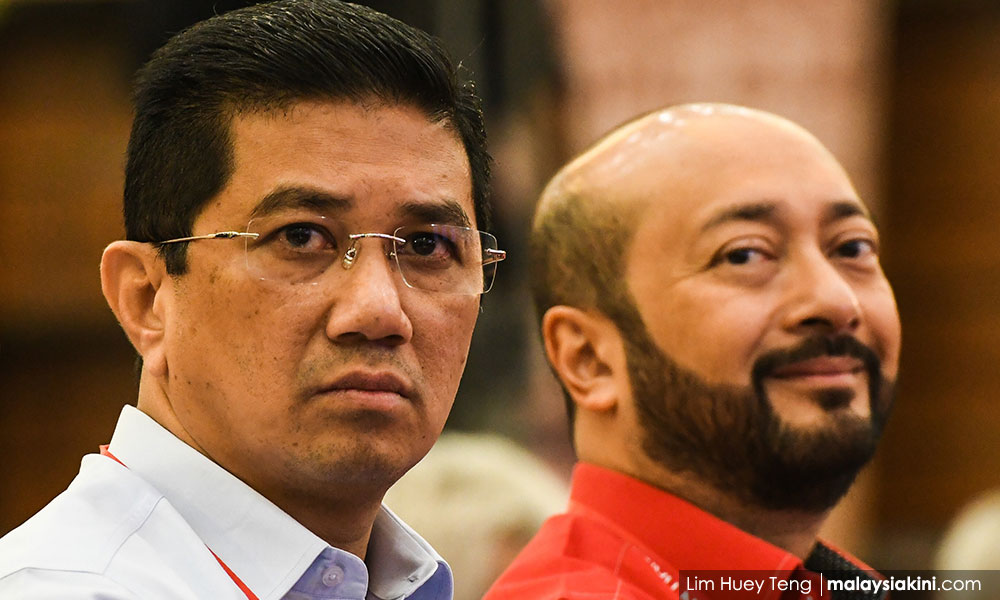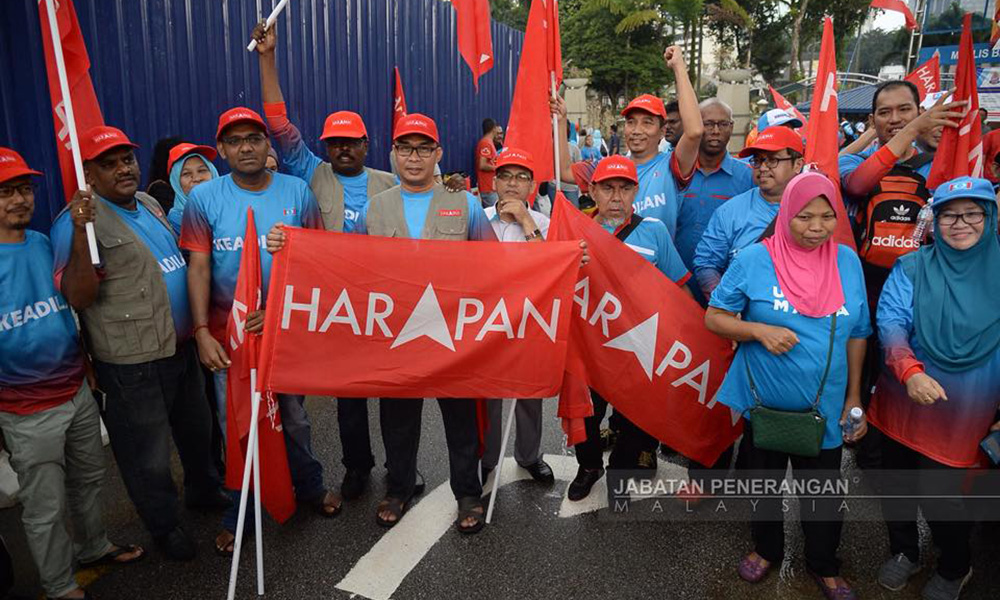COMMENT | After the frivolous “Kajang Move”, it is a wonder that our thick-skinned politicians in Pakatan Harapan still want to test the patience of Malaysian voters by forcing another by-election
to allow Anwar Ibrahim to become an MP.
Why should a recently elected MP resign for yet another asinine by-election?
One would think that if Anwar is in such a hurry to get into Parliament, the most suitable seat for him to stand is that of our 93-year-old Prime Minister Dr Mahathir Mohamad who has already said that he has only one mission in “saving Malaysia” and that is to get rid of the former premier Najib Abdul Razak.
That mission is now accomplished and surely his seat would be the most suitable to vacate for Anwar.
At his age and from what he has done since GE14, he does not seem to have any new ideas to turn the country around and institute proper reforms.
Well, this does not have to be executed immediately but it can be arranged in the next few months for the transition PM to prepare for the changeover.
That way, it will not provoke the irritation of voters who will be more understanding of the elderly politician bowing out of the national
stage.
Thinking outside the box
Politicians, when it fits their agenda, do have the capacity to think outside the box.
In January, Harapan Wanita chief Zuraida Kamaruddin, who is now a minister, proposed having Azmin Ali and Mukhriz Mahathir (photo) as candidates for PM and DPM instead, and argued that such a pact could introduce a “refreshing” take on the country’s politics, and would be able to attract young voters.

This was indeed a bold and fresh opinion of a leader in Anwar’s own party.
If that were the case, PKR would not even have to put taxpayers through the ordeal of another forced by-election in order to allow Anwar onto the political stage and he could then bide his time until the next elections.
Doesn’t Anwar have enough on his hands in forging meaningful unity within his own party, given the almost daily mudslinging we witness between the two PKR leadership factions?
Elderly politicians should know when to get off the stage
“If you don’t know when to get off the stage, then you know you have stayed too long...”
This piece of show business advice should be learnt by our elderly politicians.
It is almost comical to see our elderly politicians still trying to justify their “right” to stand for elections even while they clamour for “change” in the political order.
They even cite political conspiracies by their political opponents to justify hogging their electoral seats.
Some have been in Parliament since the era of the Tunku Abdul Rahman – half a century ago. During that time, Umno (surely not the paragon of democracy) has changed party leaders five times!
It is no coincidence that too many political leaders exert tight control over their own political parties with prospective candidates in the party beholden to them.
Such leaders also hog the federal as well as the state seats using the justification that they are indispensable.
The late Karpal Singh was a stern opponent of this grabby practice by established party leaders to hog federal as well as state seats.
His famous line when a former DAP stalwart left the party in
1990 was: “No one is indispensable.”
That surely applies to everyone in the world, or do some people believe they are exempt from this mortal truism?
In other democratic countries, we see responsible and honourable politicians resign at the slightest failure of judgement on their part or when their term has reached a convenient point for some other younger leader to take over the party.
The democratic justification for this term limit is simply that elected officials can over time obtain too much power or authority and thus makes them less representative of all the citizens.
The democratic principle behind term limit is that no one person should have too much power nor for too long. Thus, the concept of term limits minimises the amount of power any one person can
gain over a period of time.
Preventing chances of corruption
As we have seen only recently, even within the two-term service, corporate interests including those in property and finance can provide inducements to the incumbent chief minister especially
when they have developed familiar relations over time.
There is clearly a correlation between the length of time a politician serves and the degree to which he/she has opportunities to engage in corruption.

The principle of term limits has always been applied to the civil service which is why civil servants and police personnel are transferred every so often to prevent the acquisition of power and inducements to corruption in any one post.
Term limits would make this less likely since there is less time that a politician can be influenced by the power of the office that they hold.
Corporate interests cannot become as entrenched when term limits are in place.
With term limitations, corporate influence still happens, but not to the extent that it can when such interests develop unhealthy relationships with career politicians who are in office for a long time.
Preventing careerism
In a democracy, elected representatives are supposed to represent the interests of the citizens.
As most politicians will tell us when they are interviewed especially before the elections, their work is supposed to be a service to society as a whole.
Being an MP or state representative is not a profession even though it has become a career for many people.
In fact, elected officials should operate on the understanding that they are only serving the people for a period of time until it is someone else’s turn.
Term limits ensure that their representatives focus more on representing the public than on hogging the office and power.
Providing leadership opportunities for others
Democracy and organisational development are about providing opportunities to as many people as possible and especially empowering the young, women, indigenous people and the marginalised.
In our society, there are so many individuals with untapped potential for leadership as if that is not clear for all to see.
In recent years, we have seen the surge of many young capable leaders in politics, including women from various ethnic origins.
Isn’t it amazing that after 61 years of Independence, we still have elderly politicians who have been MPs since the Tunku’s era and still refuse to let other young leaders have a go at the electoral merry-go-round?
The ancient sage Laozi could appreciate what true leadership is: “A leader is best when people barely know he exists, when his work is done, his aim fulfilled, they will say: we did it ourselves.”
KUA KIA SOONG is Suaram adviser.
The views expressed here are those of the author/contributor and do not necessarily represent the views of Malaysiakini.

